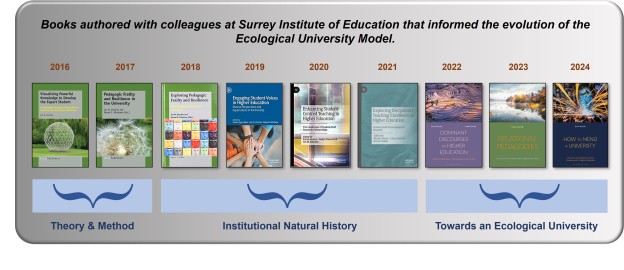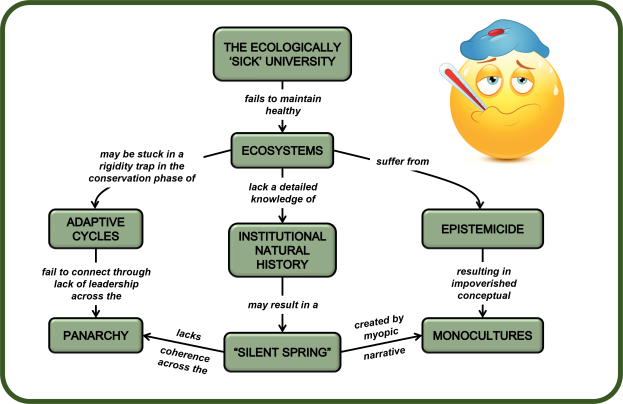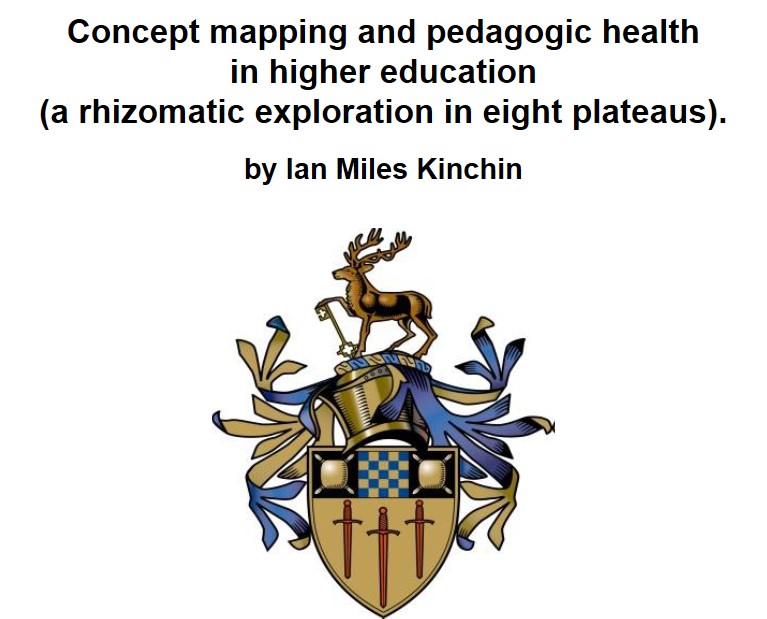
2016 2017 2018
This set of three books provides a comprehensive introduction to the application of concept mapping to reveal the knowledge structures that need to be explored in the examination of pedagogic frailty (2016), the exploration of the theory underpinning pedagogic frailty and how this relates to other areas of educational research (2017), and a series of practical case studies of academics from across the disciplines who have used the frailty model as a framework for their own reflective narratives (2018).
Reviews of the 2018 volume:
“Concept mapping and the pedagogic frailty model form a powerful combination to drive reflection upon professional development, which is critical to respond rapidly to changes in the higher education system. This book is a must-read for any academic who wishes to become a resilient teacher.”
Prof. Paulo Correia (University of São Paulo, Brazil).
“Increasing pedagogic frailty is one of the biggest risks for academic quality in universities. This book gives a systematic, compact and research-based view about contemporary issues related to university teaching. It helped me to see the problems in my own university, and more importantly, it gave me ideas for solving them. I recommend this book to everybody who is involved in teaching at universities – from novice teachers to professors, administrators and senior managers.”
Prof. Priit Reiska (Tallinn University, Estonia).
ORDER A COPY










